Titus Played the Fool (Last update 11:38PM)
It appears that the Family Educational Rights and Privacy Act (FERPA) (20 U.S.C. § 1232g; 34 CFR Part 99) protected key card records of Duke University students which District Attorney Mike Nifong sought by subpoena 0n May 31, 2006 were actually provided to the Durham Police Department, and in turn to the ex-DA, on March 31, 2006. Although Nifong had access to the records for months, he pretended to seek them with his subpoena and then, incredibly, argued vigorously for their production in a July court hearing.
A review of the case notes and State Bar deposition of Sgt. Mark Gottlieb reveals that the private key card records were obtained from Duke University without a court order and in violation of FERPA. Gottlieb's deposition also reveals that the information provided illegally by Duke University contributed to the indictment of Collin Finnerty while leading directly to the indictment of Reade Seligmann. The key card date, illegally obtained and purposefully misconstrued by Sgt. Gottlieb, offered the only "corroboration" presented to the Grand Jury of Seligmann's presence at the scene of the imagined crimes.
At approximately 3:00PM on March 31, 2006, Duke Police Investigators Sgt. Gary Smith and Sgt. Greg Stotsenberg delivered a report on the key card activity of the Duke University lacrosse team to Sgt. Mark Gottlieb of the Durham Police Department.
Sgt. Gottlieb’s homegrown notes indicated:
3/31/2006...1500
Inv. Smith and Stotsenberg from Duke Police drove up to the District 2 substation as I was leaving. They had three reports they delivered reports to me requested by us. Two were for staff at Duke who are being harassed due to this case (Duke reports #2006-1548 and 2006-1515), and one is a key card report for the team members on 3/13/06 to 3/14/06.
With Mr. Finnerty, we were able to show that he was at the party and that she had identified him. And we had the time cards, per se. I don't know what exactly you would call it, but each student has a magnetic card that if they go in the parking lot or dorm room or buy food, whatever, if they use that card it leaves an electronics stamp. And we had a document showing that he arrived back at the dorm at the time as the of the people who we knew were at the party. So we were able to put together information to at least corroborate, one, he was there; two, he met the description; three, she was able to show him; the SANE nurse's report was consistent with a sexual assault. So we had something to work with there for an indictment.In response to State Bar prosecutor Doug Brocker, Gottlieb notes that the information provided by Smith and Stotsenberg was presented to the Grand Jury in his pitch for indictments against Seligmann and Finnerty for crimes that never occurred.
With Mr. Seligmann, we never had anything to tie him to the party directly. Meaning, when we asked the players, you know I had asked the two about the list, the two that I asked never placed him at the party, and the third guy never placed him at the party. And, yes, he met the physical description. But strictly looking at a picture and saying, "That's the man who raped me," Ben was very concerned. We knew that he came in close to the same time that the other players came in. So it wasn't out of the question that he was at the party.
Q. And what did you testify to at the Grand Jury?Sgt. Gottlieb states that the key card information obtained from Duke Police was shared with former District Attorney Mike Nifong.
A. I told the facts of what's documented in my report. … I spoke to them about the time cards issues. …
And then the same document, 204, if you go to page 1825, my number 11, at 1500 hours, Investigators Smith and Stotsenberg drove to District Two and they they gave me reports number 1548 and 1515 and one key card report for the team members from 3/13 and 3/14. So those are the Duke reports that Mr. Nifong would have access to.On May 31, 2006, two months after Duke Police provided the student’s private information to Sgt. Mark Gottlieb, Durham County District Attorney Mike Nifong issued a subpoena for the records that Sgt. Gottlieb admits Nifong had access to.
Investigator Ben Himan's notes include a reference to receiving the subpoena from Nifong's office.
5/31/06 - Received subpoenas from Candy Clark in reference to key card access.On July 17, 2006, attorneys for the un-indicted players, believing that Duke University had not already released the information it was obligated to protect, objected to the release of the student’s private information in a hearing to quash the subpoena before Durham County Superior Court Judge Kenneth C. Titus.
"The return of the subpoena, your Honor, directs the university to deliver the records requested or commanded to the Superior Court Judge’s chambers in the Durham County Judicial Building, 6/4, in Durham…The university’s counsel’s office at Duke was heads up enough, your Honor, to comply with the provisions of FERPA and informing Mr. Krom of the existence of the subpoena…we contend for the reasons stated in our motion that the subpoena does not comply with the provisions of FERPA and the Code of Federal Regulations cited in our motion and also alluded to on the face of the subpoena itself." - Tommy Manning
"There’s no question that the information that the DA is attempting to subpoena is covered by FERPA, its educational information, its educational records, and they’re clearly covered.
"The reason for FERPA is two-fold, the first is to give students access to their records but the second most important reason that applies here is to ensure the privacy and confidentiality of his records. There are some exceptions that apply and in the regulations one exception is a court order or a lawfully issued subpoena." -Bob Thomas
"I would like to emphasize however that FERPA establishes a congressional conclusion that the privacy rights that are attached to things like medical records and other personal information like banking records would also apply to educational records. As such, what happens in a case like this when somebody is approaching the court with an order compelling the disclosure of private, federally protected information that the individual that’s seeking production must show the court some need, some individualized, particularized need for those records. In addition that individual needs to show the court that that need overrides that federal conclusion that these records are important and the confidentiality is important. It must be preserved, not at all costs, but it must be preserved diligently against assertions of need that are not sufficient to override it. Essentially, this question asks this court to balance the need of the requesting party with the established privacy rights of the individuals, the students involved here and this court has no way of doing that today because the court does not have the fundamental tool that is used to articulate the need. There’s no affidavit and our courts have said long before FERPA and even outside of the scope of FERPA and in cases you have before you entering superior court order is a leading case, that there must be an affidavit or similar evidence and by that I take the court to mean similarly sufficient and certainly sworn testimony of some kind. A witness, under oath would do but, it seems the proper vehicle is an affidavit and its clear, obviously, there is no affidavit here." -Bob EkstrandAt the hearing, former District Attorney Nifong argued for the State's right to obtain the records without revealing that the information was already in the State's possession.
"The subpoena that was issued is a sufficient subpoena for Duke University through the office of council Kate Hendricks to comply with as long as they give notice. As I indicated to the court before we started here, there was nothing secretive, there was nothing underhanded, there was nothing suggestive other than the fact that we may need to have some of these young men here as witnesses…we’re not trying to investigate them. We’re not trying to say that there are crimes that we want to prove that they are guilty of. … And with respect to the card access, we want to be able to confirm what they tell us about where they went afterwards because that’s what that shows - the times that people went into dorm rooms and things like that. We’re not asking for anything but that 24 hours surrounding this event. We haven’t asked for any other records. This is not a fishing expedition. This is an attempt to put the State in a position to try this case."Not only does Nifong fail to note that he was already in possession of the protected records but he also argues quite deceptively that his request should be allowed because he asks for the records to be delivered to the Court and not directly to him. With a straight face, the practiced dissembler suggests that the students privacy would be protected since a judge would first review the records before allowing the DA access. Adding insult to injury, Nifong hypocritical mocks the attorneys as he concludes his argument.
With respect to the arguments that were made about the return of the subpoena, I would submit to the court that it’s certainly very different to say on the one hand that a party to a case cannot have a subpoena duces tecum issued to have those documents delivered to that party and to say that you can’t have them delivered to the Court. This is, by the way, what the DA’s office does in all cases of medical records the very same kind of subpoena is issued. I would submit that there are more privacy issues involved in medical records than there are in what we’re requesting here. This is the way subpoenas are done for every court case that we have involving medical records. They’re delivered to the Judge’s chambers. Which means, automatically, the step that they’re talking about where you have to have a judicial official overlook that to make sure that the State isn’t getting something it’s not entitled to is taken care of. If the records come to the Judge, there are no Judges in my office. I can’t say ‘give me those records’. I have to get them from the Judge who can review the records.
…And, they don’t have you know anything other than the 5th amendment right at this point, not to incriminate themselves because they’re not charged with any offense. And, I know that it looks sometimes over the course of the last few months that some of these attorneys were almost disappointed that their clients didn’t get indicted so they could be part of this spectacle here in Durham. And that’s the situation, we only indict based on our evidence we can’t indict everybody but we are entitled to present a case to the citizens of Durham whereby they can determine what occurred in this case.On July 21, 2006, Judge Titus ruled that the State was not entitled to the information which he stated was protected by FERPA. Noting that there was no materiality or necessity shown to overcome FERPA with respect to the key card information, Judge Titus quashed the subpoena and issued a protective order.
The News & Observer described Titus's ruling as follows:
A judge stopped District Attorney Mike Nifong's quest to get key card records for unindicted Duke University lacrosse players and decided Friday that the prosecutor was only entitled to the players' home addresses.It is difficult to assign a motive to Nifong’s attempt to subpoena records he already possessed. The only possibility that comes to mind it was an effort to provide a legal basis for having the records so that he could use them at trial in the same manner that they were used before the Grand Jury.
Nifong said in court this week that every member of the team who attended a March party that ended with allegations of rape was a potential witness and that the key card records could help corroborate whatever testimony the unindicted players give. Attorneys for the team members convinced the judge that Nifong had not shown a good reason to reveal federally protected school records of students who are not accused of a crime.
But the prosecutor wanted the university to hand over key card records for those unindicted players, possibly to try to track their movements after the party ended.
Titus ruled that Nifong had not shown a good reason to obtain those records from the university.
Defense lawyer Bill Thomas said the key card records are just as protected by federal privacy laws as grades and other academic records.
"The state had no business foraging through the the educational records of these innocent young men," said Thomas, who represents one of the unindicted team captains.
"He's asking for my client's confidential records. I don't know what his motive is or what he's trying to do," said Tommy Manning, who represents one of the players.
By not disclosing that the records were already in hand, Nifong effectively made a mockery of the court proceedings. Rendered moot by the prior production of the information without a court order, Judge Titus’s July decisions had no substance. His protective order protected no one.
Pending further research, it is unclear what may be the specific legal significance of presenting illegally obtained evidence to the Grand Jury in order to obtain indictments against innocent people for crimes that never occurred. Absent a criminal investigation by the DOJ or SBI, it is a safe guess that, in this particular instance, the consequences for the duplicitous tactic will be nothing. It also remains unclear what the legal or civil ramifications for violating FERPA will be for Duke University.
"Supreme Court Holds No Private Right To Money Damages For FERPA Violations" - Miller, Canfield, Paddock and Stone, P.L.C., June 2002
Just about every educational administrator is familiar with the Family Educational Rights and Privacy Act (FERPA), the statute that prohibits educational institutions that receive federal funds from releasing education records without consent. Compliance with FERPA can be difficult and tedious, but administrators can rest a little easier now. The Supreme Court ruled last week that FERPA does not create private rights enforceable in a lawsuit to obtain money damages.
The issue arose in a suit against Gonzaga University by student "John Doe." Doe planned to become a public elementary school teacher after graduation, and was required to obtain an affidavit of "good moral character" for state certification. Doe was denied the necessary affidavit after the university�s "certification specialist" investigated a rumor that Doe had engaged in sexual misconduct. The specialist contacted the state agency responsible for teacher certification, identified Doe by name, and released other information as well.
Doe filed suit against the university and the specialist asserting a variety of claims, among them, the allegation that the defendants had violated his rights under FERPA by releasing personal information to an "unauthorized person." The jury awarded Doe a verdict of $1,155,000. Of that amount, $450,000 was awarded on the FERPA claim, $150,000 in compensatory damages and $300,000 in punitive damages. The state court of appeals reversed the FERPA verdict, holding that the statute does not create individual rights. The state supreme court reversed that decision, and reinstated the jury's FERPA verdict.
The Supreme Court granted the university�s petition to hear the FERPA issue in order to resolve a split among state and federal courts. Noting that these divergent opinions all rested on the same Supreme Court precedents, the Court admitted that its prior guidance had not been a "model of clarity."
The legal question in the case was whether FERPA creates private rights that can be enforced via another statutory vehicle, 42 U.S.C. 1983. Section 1983 permits plaintiffs to sue defendants who act under color of State law for the deprivation of "rights, privileges or immunities secured by the Constitution or laws of the United States." The Supreme Court held that FERPA does not create private rights, and, consequently, that no enforcement action was possible under section 1983.
The critical language in FERPA states that "[n]o funds shall be made available under any applicable program to any educational agency or institution which has a policy or practice of permitting the release of education records . . . of students without the written consent of their parents to any individual, agency or organization." The Supreme Court was not persuaded by the common sense argument that a statutory prohibition against releasing education records creates a personal right to privacy in those records. Rather, because FERPA is phrased in terms of prohibiting federal funding, the Court held that no private remedy exists for a violation of the Act. "Unless Congress speaks with a clear voice and manifests an unambiguous intent to confer individual rights, federal funding provisions provide no basis for private enforcement by section 1983." Rather, the sole enforcement mechanism is through the centralized review procedures established by the Secretary of Education�which include the possibility that federal funding may be terminated if the institution is substantially out of compliance.
What makes FERPA different from Title IX (which, as most folks know, does create private rights that can pursued in a suit for money damages)? The "individually focused" terminology of Title IX: "No person shall be subjected to discrimination." This statute, according to the Court, is phrased with an "unmistakable focus on the benefited class" thus justifying the inference that a private right is created.
We'll never know, of course, whether Congress intended such fine distinctions in statutory language to result in such significant differences in the remedies available to those who claim that recipients of federal funds have violated federal law. What is clear is that FERPA violations cannot result in private suits for money damages. Before administrators rest too easily, however, they might want to recall that $705,000 of John Doe's jury award was for state law contract and tort claims. Of course, the fall-out from the FERPA violation in Doe's case was more dramatic than that in most instances of disclosure. The case nonetheless remains a reminder of the risks involved in handling and disclosing private records.
Gonzaga University & League, Roberta v. Doe, John - Joe Tone & Lee Pitts, Medill News Service, Medill School of Journalism Northwestern University, June 23, 2004
Subject: Family Educational Rights and Privacy Act (FERPA), student records
Questions presented
May a student sue a private university for damages under 42 U.S.C. @ 1983 to enforce the provisions of the Family Educational Rights and Privacy Act (FERPA), that disqualify from federal funding educational institutions that have a policy or practice of permitting education records to be released to unauthorized persons?
Brief
In October of 1993, Julia Lynch had concerns about how her school handled cases of rape and sexual assault. While at first, she merely told a friend à a fellow student at Gonzaga University, a small Jesuit school in Spokane, Wash. à about her concerns, her opinion has spiraled into a muddled question about the privacy rights of students.
In Lynchs conversation, she identified two students in Gonzagas education program. She said that the students, who would later be identified in a lawsuit simply as John and Jane Doe, had a sexual relationship, and that Jane Doe had complained about being sexually assaulted by John. That conversation, which took place in an office at the schools education department, was overheard by Roberta League, a teachers certification specialist at the school. League recognized Johns name, and two days later, told Dr. Susan Kyle, Gonzaga's director of field experience for student teachers.
The two began a full-scale investigation, and eventually met with Jane. She declined to make a statement, but also refused to deny any allegations.
In February, 1994, after further investigation by League, Kyle and others, Dr. Corrine McGuigan, the dean of the school of education, concluded that ""there was sufficient evidence of a serious behavioral problem to preclude her from signing the moral character affidavit supporting John Doe's application for teacher certification.""
John Doe sued Gonzaga in state court for defamation, negligence, breach of educational contract and invasion of privacy. Under the Federal Civil Rights Act, he also sought damages for Gonzagas violation of rights granted by the Family Educational Rights and Privacy Act (FERPA). Created in 1974, FERPA was designed to protect the privacy rights of students by prohibiting schools from receiving federal dollars if, by policy or practice, they release educational records or personal information without the students consent. If the student is under 18, the school must have his or her parents consent in order to release information.
On April 1, 1997, a jury in Spokane County Superior Court awarded John Doe more than $1.1 million, including $450,000 for violation of his rights under FERPA. On appeal, the decisions on claims of negligence, breach of contract and invasion of privacy were reversed, while the Washington Court of Appeals remanded the case for a new trial on the issue of defamation. The appeals court ruled there was nothing highly offensive, as necessary, to award damages for invasion of privacy, and also that communication among Gonzaga faculty could not be considered publication, as necessary for a claim of defamation.
The Washington State Supreme Court unanimously affirmed the dismissal of the negligence complaint, but reinstated the damages initially awarded for defamation, invasion of privacy, breach of contract, and the violation of FERPA rights à a decision attorneys for both sides say is important for universities and students all across America.
In the courts decision concerning FERPA, it relied on the testimony of Adelle Nore, an investigator for the Office of the Superintendent of Public Instruction (OSPI), the state agency that certifies teachers. University personnel often contact the OSPI to seek advice about students of concern. From Nores testimony, the court determined that Gonzaga personnel often called OSPI to discuss John Doe and revealed personal identifying information within those conversations.
""Substantial evidence supports a determination that Gonzaga had a ""policy or practice"" of disclosing personally identifiable information contained in education records in violation of FERPA,"" the decision reads.
The court then needed to determine whether John Doe, because his FERPA rights were in fact violated, could seek damages under a separate statute, the Federal Civil Rights Act (42 U.S.C. 1983).
""To determine whether a particular statutory provision gives rise to a federal right,"" the decision reads, ""a court must examine the following three factors: (1) whether Congress intended the provision in question to benefit the plaintiff; (2) whether the right protected by the statute is so Ôvague and amorphous that its enforcement would strain judicial competence; and (3) whether the statute imposes a binding obligation on the states."" Given those factors, the court determined that a student could seek damages after a violation of rights granted to him by FERPA, a question which has never before been addressed by the U.S. Supreme Court.
The attorneys in the case disagree widely about whether, by violating FERPA, the school violated section 1983 of the federal Civil Rights Act.
Gonzagas attorney, John G. Roberts, says making the jump from one act to the next carries ""very high consequences,"" and ""not just to Gonzaga, but to universities around the country."" He says FERPA is solely about federal funding.
""It doesnt talk about federal court action,"" he says. ""Nothing in it says anything about the right to seek damages.""
But Laurel H. Siddoway, the attorney for John Doe, says ""FERPA has all of the characteristics"" of similar acts under which the U.S. Supreme Court has determined one could, if his or her rights were violated, seek damages.
On Jan. 11, 2002, the U.S. Supreme Court granted certiorari in the case, limiting review specifically to the first question in Gonzaga University's petition: whether John Doe can seek damages for the violation of rights granted to him by FERPA.
On June 20, 2002, the Court sided with the university, 7-2, in determining that FERPA granted no enforceable individual rights, and, therefore, individuals cannot seek damages under section 1983 of the Federal Civil Rights Act.
Chief Justice William Rehnquist, writing for the majority, said ""FERPAs nondisclosure provisionsÉhave an aggregate, not individual, focus, and they serve primarily to direct the Secretary of Educations distribution of public funds to educational institutions.""
The majority concluded that Congress enacted FERPA to put in place a mechanism to tie educational institutions receipt of federal funding to their ability to follow certain guidelines regarding the dissemination of student records.
This administrative means of enforcement provided to the Secretary is ""two steps removed from the interests of individual students and parents and clearly does not confer the sort of individual entitlement that is enforceable.""
Rehnquist concluded that in provisions enacted by Congress to guide federal funding ""where the text and structure of a statute provide no indication that Congress intends to create new individual rights, there is no basis for a private suit.""
The Court further stated the ""mechanism that Congress chose to provide for enforcing these provisions"" further precludes any individual right to action. Schools can only lose funding if they display repeated failures at protecting private records. Since a school cannot lose funds for one violation, an individual should not gain the right to sue from that single violation. In conclusion, Congress did not intend for ""private suits to be brought before thousands of federal- and state-court judges, which could only result in the sort of Ômultiple interpretations the Act explicitly sought to avoid.""
Justices Stephen Breyer and David Souter concurred in the decision because the statutes ""broad and nonspecific"" language ""leaves schools uncertain as to just when they can, or cannot, reveal various kinds of information."" Breyer warned that allowing private suits could lead to ""interpretations that invariably favor confidentiality almost irrespective of conflicting educational needs or the importance, or common sense, of limited disclosures in certain circumstances, say, where individuals are being considered for work with young children.""
In dissent, Justice John Paul Stevens argued that the very title of the Family Educational Rights and Privacy Act creates individual rights. Stevens, joined by Ruth Bader Ginsburg, said the statute indeed has an individual focus, as there are a ""substantial number of references to rights"" in FERPAs 10 subsections. Stevens added that while every lower court opinion regarding FERPA has determined that the statute creates individual rights, Congress has not moved to overrule these decisions by revising the law. Thus, ""the court departs form over a quarter century of settled law in concluding that FERPA creates no enforceable rights.""
Stevens claimed that the majoritys logic wrongly creates a pecking order of rights by crafting a new category of second-class statutory rights."" He concluded that creating ""such a hierarchy of rights is not only novel, but it blurs the long-recognized distinction between rights and remedies.""
Collateral Uses
Even if no exception to the exclusionary rule applies, the government may still use illegally obtained evidence in contexts outside of the prosecution's case-in-chief. For example, the government may introduce tainted evidence in federal civil tax proceedings, habeas proceedings, grand jury proceedings, civil deportation proceedings, parole revocation proceedings,and at a defendant's sentencing hearing.
Video of contrived hearing on Nifong's subpoena to "obtain" key card data:The exclusionary rule works to prevent the admission into evidence of any item, confession, or other thing that was obtained by law enforcement officers in an unconstitutional manner.
The evidence must be obtained by the police in an unlawful manner. However, if a private citizen working on his or her own obtains evidence illegally and then turns it over to the police, it may be admitted. People hired or authorized to assist the police are considered agents of the government, and therefore the exclusionary rule applies to their actions.
The exclusionary rule does not apply to pretrial matters. A defendant may not challenge a grand jury indictment because the grand jury considered illegally obtained evidence.
Timeline:
March 27, 2006: Sheila Eason requests information from Duke PoliceMarch 27, 2006: Nifong, Himan, Gottlieb possibly discuss obtaining emails and additional "stuff" from DukeHi, Lt. Best. As we discussed on the phone, Mr. Nifong, our DA wants any and all details documented in writing concerning the incident involving the alleged gang rape by the Duke Lacrosse Team members of Crystal Mangum….All details, even though they may seem insignificant, may add together to help us with this case. Thank you for your assistance with this matter.Brocker: What else, if anything, do you recall discussing with Mr. Nifong during this initial meeting?March 29, 2006: Gottlieb & Himan meet with DPD Police Chief Steve Chalmers, City Manager Patrick Baker, DPD Deputy Chief Ron Hodge, an attorney for the Durham Police Department, Duke University Associate Vice President for Campus Safety and Security Aaron Graves, Duke University Police Director Robert Dean.
Himan: I think we discussed possibly -- I don’t know the initial meeting. But I know we started talking about getting court orders for e-mails and stuff like that for Duke University.The two detectives met on March 29 with Baker, Chalmers, Hodge, a police attorney and two Duke University officials -- Associate Vice President for Campus Safety and Security Aaron Graves and Police Director Robert Dean.March 31, 2006: Duke PD delivers key card data to Sgt. Gottlieb. Gottlieb notes that key card information was "requested by us."
Baker on Tuesday said the March 29 meeting allowed him to hear from Gottlieb and Himan first-hand, to make sure they and Duke police were working smoothly together... H/S
3/29/06 - 1300
Inv. Himan and I were summonsed to a meeting at Police HQ to discuss the case with the Durham Police Command Staff, Duke Police Command Staff, City Manager, and the Police Department Legal Advisor. - GottliebInv. Smith and Stotsenberg from Duke Police drove up to the District 2 substation as I was leaving. They had three reports they delivered reports to me requested by us. Two were for staff at Duke who are being harassed due to this case (Duke reports #2006-1548 and 2006-1515), and one is a key card report for the team members on 3/13/06 to 3/14/06.April 17, 2006: Gottlieb presents the illegally obtained key card data to the Grand Jury.With Mr. Finnerty, we were able to show that he was at the party and that she had identified him. And we had the time cards, per se. I don't know what exactly you would call it, but each student has a magnetic card that if they go in the parking lot or dorm room or buy food, whatever, if they use that card it leaves an electronics stamp. And we had a document showing that he arrived back at the dorm at the time as the of the people who we knew were at the party. So we were able to put together information to at least corroborate, one, he was there; two, he met the description; three, she was able to show him; the SANE nurse's report was consistent with a sexual assault. So we had something to work with there for an indictment.April 24, 2006: Himan asks Nifong to add the names of all lacrosse team members to the subpoena.
With Mr. Seligmann, we never had anything to tie him to the party directly. Meaning, when we asked the players, you know I had asked the two about the list, the two that I asked never placed him at the party, and the third guy never placed him at the party. And, yes, he met the physical description. But strictly looking at a picture and saying, "That's the man who raped me," Ben was very concerned. We knew that he came in close to the same time that the other players came in. So it wasn't out of the question that he was at the party.
...I told the facts of what's documented in my report. … I spoke to them about the time cards issues. …4/24/06 1157hrs - Mr. Nifong contacted me in reference to the subpoena that was to be given out. I asked that all names be from the lacrosse team be added to those subpoenas.May 31, 2006: Himan receives subpoena from Nifong's office.5/31/06 - Received subpoenas from Candy Clark in reference to key card access.July 17, 2006: Sgt. Gottlieb's homegrown notes, including the reference to the illegally obtained evidence, are finally turned over to the defendants.
July 17, 2006: Judge Titus conducts fake hearing on motion to quash subpoena ordering production of records already in the government's possession as if the records had not yet been obtained illegally by the government.
July 18, 2006: Defense attorneys inspect the files of the Durham Police Department and discover evidence that had been withheld from discovery. In an August motion detailing the withheld evidence, no mention is made of the key card data.Defense attorneys Brad Bannon, Buddy Conner, Bill Cotter, and Kirk Osborn reviewed the investigative file and physical evidence "in these matters" at the DPD. CSI Angela Ashby and lead investigator Ben Himan were present. Counsel for the defense discovered the following items in the investigative file which had not been provided to the defense in discovery:July 21, 2006: Judge Titus issues meaningless protective order and order quashing the subpoena.
a. Major Milhaich's May 25 memo directing the preservation and production of all e-mails sent to or from case investigators. The version of the memo sent specifically to CSI Ashby was located in her file of case materials, along with e-mails to and from her about the case which were obviously produced in response to the memo and retained in her own file. Those e-mails had also not been provided to the Defendants in to-date discovery.
b. A computerized criminal history and DPD criminal case description history regarding [the AV], which was sought and produced on April 11. In addition to listing the alleged rape charges in this case (DPD case number 06-008310) and the original felony charges and ultimate misdemeanor dispositions of cases that arose against [the AV] on June 21, 2002, regarding the theft of an automobile followed by a high-speed chase and felony assault on a law enforcement officer (DPD case number 02-060468). the documents also listed the following DPD case numbers in which [the AV] was somehow involved:
Date of incident Case No. Srce. Inv. Description
8-30-2000 00-030407 ARRS PRIS Driving while impaired
9-17-2000 00-032879 OFFN SUSP Larceny
10-25-2000 00-037545 OFFN OTHR Family/minor-other offense
4-26-2004 04-011166 OFFN CMPL Child molestation
Other than the investigation of the above-reference case, the investigative file does not contain any underlying substantive reports of any of [the AV's] previous interactions with the criminal justice system that resulted in the assignment of a DPD case number.
[Joint Omnibus Motion to Compel Discovery, paragraph 16, filed August 31, 2006]
July 28, 2006: Nifong dumps Judge Titus by agreeing to have the cases declared exceptional. The special designation removed Judge Titus from the case and paved the way for the appointment of Judge Osmond Smith.Court officials have taken steps toward having the Duke rape case declared "exceptional," which would allow a single judge to schedule and manage the cases against three lacrosse players.
Durham Trial Court Administrator Kathy Shuart said the parties in the case have agreed in principle to the designation, which would remove the case from Durham's case management system. Instead of monthly court hearings being set, a single judge, who would be appointed by state judicial officials, would decide when to hear motions or call the parties into court, Shuart said. N&O
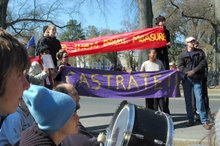





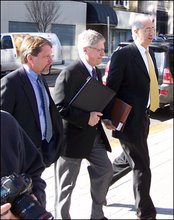
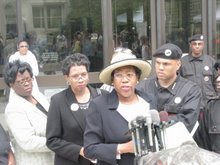
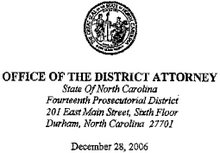
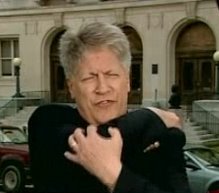





















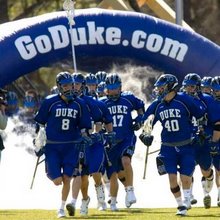



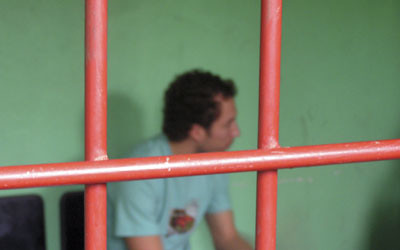



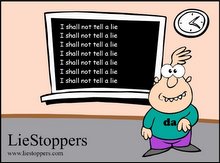






24 comments:
In second sentence of next-to-last paragraph, "rendered mute" should probably be "rendered moot."
Otherwise, good article. If nothing else, it should be grounds for the unindicted LAX players to sue Duke University. Not sure if this issue was covered in the settlement between the three indicted players and Duke -- probably so.
Wow, super sleuthing, Liestoppers! This is unbelievable! I figured Duke cooperated like the Vichy French to allow Himan to interrogate students at the Edens Dorm on indictment eve, but this is freaking unbelievable. This more reason to get rid of Brodhead! By the way, Floyd is seriously impressed,
_O_ ... Damn!
( )
/ \
Another very insightful post, LieStoppers. I cannot understand how a prosecutor can knowingly mislead a judge and not suffer severe consequences. But asked to choose which judge in the Hoax saga would be most apt to do nothing when faced with a lying Nifong, Judges Titus and Stephens would tie for first place with Orlando Hudson running a close second.
I agree Duke is safe from the three who settled but this certainly adds to the cause of action an unindicted player could pursue.
I hope all Duke students understand that any and all of their personal information is readily available to local law enforcement under the proper circumstances.
12:20 AM
A slip with the word "mute" which makes emphasis of "moot." It is a slip that certainly speaks to the reality of a government response to this illegal act on the part of Duke and its administration.
Great Ceasar's ghost! I have known that Duke was complicit in the boys' railroading, but I didn't know that they were as "proactive" as they seem to have been- nor that they were so very, very STUPID. This smacks of someone who is not too very bright and who doesn't really understand what FERPA covers. Suggestions anyone?? I have some "heavy" thoughts about it.
Texas Mom
Let's just all hope and pray that one of the other (non-3) Lax team members will sue the living daylights out of Duke. The enablers at Duke are far, far worse than the Vichy French. Someone needs to hold Duke to account. Clearly, Brodhead doesn't possess brass ones.
So even Judge Titus, not exactly known for standing up to Nifong, was more protective of the students' rights than the DEuke administration was.
That's pretty sad.
"It is difficult to assign a motive to Nifong’s attempt to subpoena records he already possessed. The only possibility that comes to mind it was an effort to provide a legal basis for having the records so that he could use them at trial in the same manner that they were used before the Grand Jury."
Or maybe Nifong was telling the truth when he said he hadn't read the files? Nah, seven words into that sentence and you know you're on the worng track.
8:15
If I read the post correctly, the remaining players cannot collect money damages from Duke--I think that is the point of the Gonzaga case.--Buddy
Buddy (at 9:50) wrote: "If I read the post correctly, the remaining players cannot collect money damages from Duke--I think that is the point of the Gonzaga case."
Agreed. However, the legal remedy in a successful FIRPA lawsuit is, ultimately, the ineligibility of Duke to receive federal funding--kind of like a research university death sentence. And it's *that* that I hope will motivate one of the players not precluded by settlement.
To be sure, the prospect of Duke losing federal funding over this is slim (perhaps to none). That said, why not make them defend themselves? Hell, everyone involved has earned at least the right to see Duke squirm and bleed. Moreover, FIRPA was passed with precisely this type of odious educational institution over-reach in mind.
It sounds like at the very least the federal government (the portion involved with FERPA) needs to be made aware of this violation so that they can monitor Duke's future compliance. Duke needs to be on notice that this is *NOT* acceptable.
Another judge pissed on by Nifong. They must love water sports in North Carolina.
Did Duke notify the students of the disclosure of the FERPA info? Did they have an obligation to do so?
Was anyone at Duke aware of Nifong's after-the-fact subpoena and misrepresentation to the court? If so, did they speak out, or did they remain silent?
So Nifong misled another court/Judge. Will Judge Titus do anything about it?
He states "the SANE nurse's REPORT
confirms a sexual assualt occurred." This is different from the "SANE nurse confirmed ...." He is lying again.
Discussion on Liestoppers board indicates that you can't collect personally for FERPA violations, so the fact that the Duke 3 already settled for everything doesn't matter in this case anyway.
On the other hand, you *can* ... sue? petition the Federal Dept. of Education? ... I'm not sure how it works ... and ask that, as a penalty for violating FERPA, Duke should lose ALL ACCESS TO FEDERAL FUNDING. Ouch.
I hope they pursue this course of action.
Carolyn says:
This just turns my stomach, reading Gottlieb's words about naming Reade before the Grand Jury:
"With Mr. Seligmann, we never had anything to tie him to the party directly..."
Never had anything.
The only 'thing' Gottlieb ever had was twisting a pathetic, useless dorm card which poor Reade swiped "...close to the same time as the other players came in. So it wasn't out of the question that he was at the party."
My god! Gottlieb's hatred of the Duke players is so vile that even admitting he has NO proof whatsoever that Reade was even at the party, Gottlieb nonetheless orders the Grand Jury to indict Reade for gang rape!
This is sick!
Two items that are worth noting from the Gonzaga ruling...
1) While an individual may not seek damages for FERPA violations, it does not remove all liability from the University. Two thirds of the judgment in the Gonzaga case, although based on the same actions that violated FERPA, were allowed to stand as they were also cited in state law contract and tort claims. The effect of the rulling appear to be that an individual can't seek additional damages for the FERPA violation. Doe was still awarded 705K.
2) The pattern of abuse that was required to threaten federal funding was established from the actions against Doe alone. In other words, repeated actions against the same student is sufficient to establish a pattern of violations.
What about the discovery implications?
This key card data was not turned over to the defense attorneys, otherwise they would have spoken up at the hearing. Was Nifong (or the police, who were working for him) required to turn over this information?
9:22 -- good point. The prosecutiaon may also have admitted to having the information and the judge sealed it, no? Once sealed, could either side have mentioned it?
Seems that someone, at some point, realized they had illegally obtained evidence and the subpoena was issued to try to make it legal (and useable in court).
there was a photo on Dan Abrahms show from the party showing Reade with a red cup sitting next to the captains that swore he was not at the party. That is why all the captains swearing he was not there is significant; he was there and drinking with the rest.
7:28 -- Given what was said at the hearing (as well as what we know about Nifong) it is unlikely that the key-card records were under seal at the time of the hearing. If not, it certainly looks like these records were never turned over to the defense, which I believe (?) would be a discovery violation.
I imagine Nifong's argument would be "the police had custody of the records, I never did or even knew the police had them." While hard to disprove, it sounds false: This were one of the ONLY pieced of evidence presented the the grand jury.
Someone (Liestoppers?) should go back and look at the depositions/testimony Nifong et al to determine what Nifong told the police to use in the Grand Jury room. If I recall, no specifics were given in testimony, but it would be interesting to see what was said (did Nifong dance around the issue?)....
When Himan asked "Indict them with what?" I bet Nifong said, among other things, "use the key card records."
President Brodhead is not only a symbolic leader, he is the top Duke administrator. Brodhead said in his public statement on 3/25 that all parties were to cooperate with the police. Duke officials (including police) followed the President's directive in turning over the key card data.
Who turned over the Key Card data? Turning this information over looks illegial to this non lawyer. What do the lawyers say about this?
Post a Comment